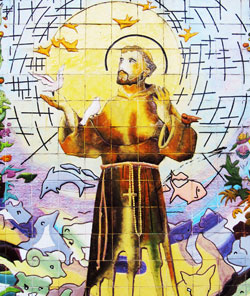Contributed by Paul Henrickson, Salem, VA
Warm-up Question
These are some Lutheran bodies in the United States. What do you know about them? Can you explain the primary differences between them:
- Evangelical Lutheran Church in America (ELCA)

- Lutheran Church-Missouri Synod (LC-MS)
- Wisconsin Evangelical Lutheran Synod (WELS)
- Association of Free Lutheran Congregations (AFLC)
- Evangelical Lutheran Synod (ELS)
- The American Association of Lutheran Churches (TAALC)
- Church of the Lutheran Confessions CLC)
- North American Lutheran Church (NALC)
- Lutheran Congregations in Mission for Christ (LCMC)
That They May All Be One
The St. Mark’s Church and Life Center of Marion, Iowa, (along with its pastor) has been removed from the roster of ELCA Lutheran Churches. St. Mark’s attempted to associate with both the ELCA and the LCMC. In news accounts, different interpretations of the situation have emerged. Read this news story and respond to the following questions
Discussion Questions
- According to the story what are the primary issues separating North American Lutherans in this instance?
- Are these issues about theology or practice or both?
- Thinking more broadly than this division among Lutherans, is it possible for the thousands of Christian denominations to all be authentically Christian?
Scripture Texts (NRSV) for Sunday, XXXXXX (SEASON)
Revelation 22:12-14, 16-17, 20-21
(Text links are to Oremus Bible Browser. Oremus Bible Browser is not affiliated with or supported by the Evangelical Lutheran Church in America. You can find the calendar of readings for Year C at Lectionary Readings.)
For lectionary humor and insight, check the weekly comic Agnus Day.
Gospel Reflection
John 17 is the “High Priestly” Prayer of Jesus. The whole prayer might be separated into three parts: vs 1-5 are about Jesus and His Father; vs 6-19 are about Jesus and the Disciples; vs 20-26 are about the unity of the church. “That all may be one” has been the theme of countless conferences and programs about Christian unity. Despite all the energy for unity, Christianity remains more like a stained glass window than a cross-etched, clear glass window on the world.
The key phrase is “…that they may all be one.” This article in this study uses the Lutheran Church as an example of church disunity; but the larger focus is on the whole Christian community. The question should not be what separates us, but what binds us together.
Discussion Questions
- Does Jesus really mean “one,” as in “one church?”
- Read Ephesians 4:4-7. “There is one body and one Spirit, just as you were called to the one hope of your calling,one Lord, one faith, one baptism,one God and Father of all, who is above all and through all and in all. But each of us was given grace according to the measure of Christ’s gift.” Does “one Lord, one faith, one baptism” mean that the church cannot have different expressions?
- Is there a “power of evangelism” in having different expressions of the Christian Church? How does Sacramental practice separate Christians–or not?
- What binds Christians together?
Activity Suggestions
- Think about the people you know. Name the many Christian expressions you come in contact with each week.
- How do Christians in your community work together?
- Plan and event in which you work with another faith community in a common service project?
Closing Prayer
God our Father, your Son Jesus prayed that his followers might be one. Make all Christians on with him as he is one with you, so that in peace and concord we may carry to the world the message of your love, through Jesus Christ, our Savior and Lord. Amen. (Evangelical Lutheran Worship, page 61)



